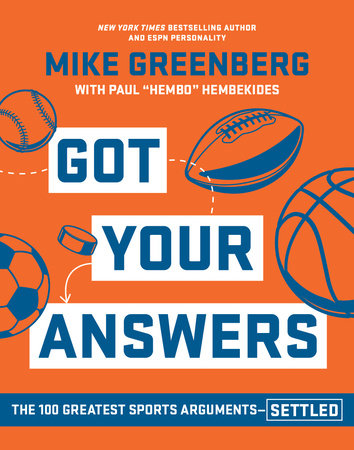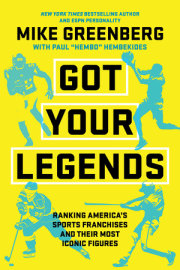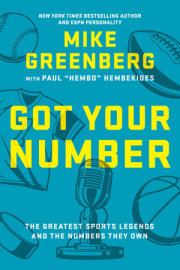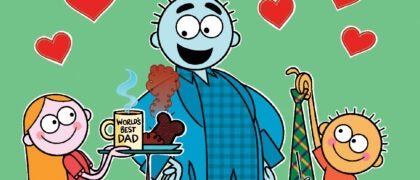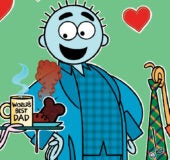INTRODUCTION
My parents were born two days apart. (Actually, they were born sixty years and two days apart, but the point is, their birthdays came two days apart.) Our family, as a result, always celebrated them as a single occasion—aka “their birthdays.” What we usually did to celebrate was go for dinner to our special occasion restaurant, which was called Jim McMullen’s, on the Upper East Side of Manhattan. In my perception, it was the most sophisticated, magical place in the world. Movie stars and ballplayers and heads of state ate there every night, people who were famous for things they had accomplished (as opposed to today, where people seem to be famous solely for being famous and often haven’t accomplished anything at all).
I can still remember what the room looked like, and smelled like, and felt like; it felt important. When you were at Jim McMullen’s, it felt like you were in the center of the universe.
So, it was February of 1978, and we were in the restaurant for the birthday celebration. I was ten, my brother was six, and our parents were each a year older than they’d been the week before. The room was electric, as it always was, noisy and brimming with energy. And then, all of a sudden, just like that, it went silent. Not a word was spoken from the booths in the dining room, the raucous laughter quieted in the bar, even the bustle in the kitchen slowed to a crawl. Time seemed to stand still, the air ceased to circulate, as though something so monumental had happened that it superseded breathing. Glancing around I saw that everyone, including my parents, had their eyes glued in the same direction, up toward the entrance; whatever was happening, it was happening up there.
Being so small, I hopped out of my chair and took a cautious step or two toward the center of the room, hoping to find out what this commotion of quiet was about. That was when I saw him. It was Howard Cosell, the living legend of sports broadcasting, arriving to have dinner with his wife. Now it was me who couldn’t draw a breath. Asa sports-obsessed kid, I took Howard Cosell to be the most important person in the world, and the reaction of the room suggested everyone else agreed. (That’s not an exaggeration—in that moment it felt as though President Carter and Leonid Brezhnev, had they been, say, in a booth in the back of the restaurant, negotiating the end of the Cold War, would have agreed to pause a moment just to process the magnitude of Cosell’s arrival.) I share this story because despite the fact that my mother will tell you I used to sit in front of the television when I was six years old and announce the football games, it was that moment that was the first time I can remember thinking I wanted to be a sports announcer.
The question is: What made Cosell so special? So consequential? He was hardly the only famous sportscaster of the time. Jim McKay and Vin Scully and Marv Albert were all among the greatest in the history of the industry, and they were at their peak in the ‘70s. And yet, if the three of them walked into Jim McMullen’s naked and dragging a dead body, it wouldn’t have caused nearly the stir that Cosell did. The answer to it all came from Howard himself. He knew that what separated him from any of them, or from anyone who had ever come before, was tha the considered it his responsibility to tell it like it is. Before there was Stephen A. Smith, or PTI, or Mike and the Mad Dog, before anyone had ever even thought of being any of them, Howard Cosell figured out that if you offered sports fans passionate opinions, they would react. Some of them favorably, some quite the opposite. Howard Cosell may have been the most reviled person on television at the time, but everyone knew his name.
In a very roundabout way, that is how we arrive here—Hembo and I—with this book. Our first, titled Got Your Number, was a little bit about sports debate, but mostly it was about sports history. What made that book stand out, and what I am most proud of, was that even the most knowledgeable sports fan learned by reading it. Thanks to Hembo’s unparalleled research, and my unquenchable fascination with the history of sports, that book was exactly the sort that I grew up reading. As a kid, there was nothing I loved more than reading books about sports history. However, what it was not was a book Howard Cosell would have written.
That’s what
Got Your Answers is.
We heard your feedback from GYN and took it to heart. You wanted more opinion, more debate, more declarative sports statements. Now you’ve got them. All of them. What you are about to read are the answers—definitive, unyielding, and unapologetic—to the one hundred most important questions in sports. You want to win every sports argument, every barstool brawl, every next-morning debate that you ever find yourself in? Now you will—because each and every answer is provided within the pages that follow. There is only one concern we share, and that is that once you are finished reading, there will benothing left to argue about, ever again.
Please enjoy—and thank you, always, for all your support.
Copyright © 2024 by Mike Greenberg with Paul Hembekides. All rights reserved. No part of this excerpt may be reproduced or reprinted without permission in writing from the publisher.





